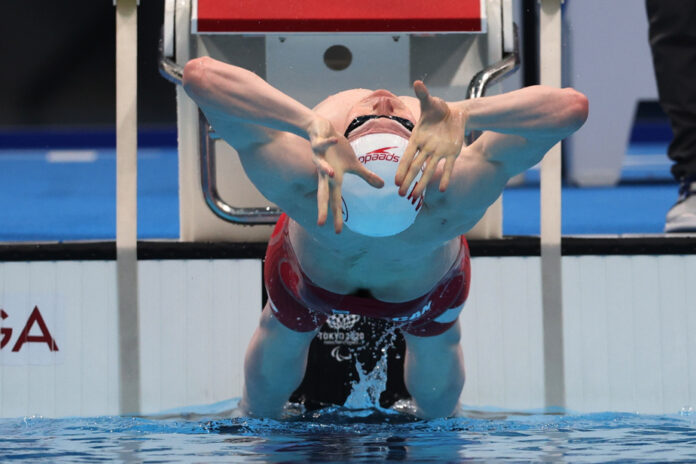Nicolas-Guy Turbide is at a crossroads. His place is still in the pool, he feels it. This is the place where he expresses himself best. If the past is a guarantee of the future, his career in the world of finance will be a success. He nevertheless wants to leave with his head in peace, and above all take the time to better prepare for the aftermath.
The visually impaired swimmer is at the end of his session at Laval University. He only has a few months left before he finally graduates. All academics have experienced the anguish of final exams. This absurd mixture of concentration and abandonment. At least the 26-year-old has always been in control of his destiny. On the phone, after an online course, he does not hesitate to describe the last year.
“In terms of results, it’s outstanding. Couldn’t ask for better. »
At the end of last month, the Quebec native was named para-swimmer of the year by Swimming Canada, for the fifth time in his career.
Among his feats of the last 12 months, there is this title of world champion, acquired in the 100m backstroke event, in Madeira, Portugal. He also took the top step of the podium after hitting the wall first in the 50m freestyle at the Commonwealth Games in Birmingham, England.
These results are amazing, especially considering his recurring injuries. “But I see it in terms of self-improvement,” he insists.
The color of the medal does not matter, at this point in his career, if he manages to beat his personal reference times. “My 50m freestyle at the Commonwealth Games is almost 1.5 seconds slower than what I did in Rio in 2016.”
This award, therefore, “represents the fruit of all [his] efforts”.
Canadian Para-swimming benefited from the excellence of Benoit Huot, Aurélie Rivard and Nicolas-Guy Turbide. This golden age, during which Canadian swimmers have been prolific, will soon draw to a close.
Witnessing Summer McIntosh’s exploits at the most recent Canadian Trials in Toronto, Turbide was both thrilled and worried. Insofar as if the enthusiasm around Canadian swimming has never been greater, in particular thanks to the prowess of the young prodigy of 16 years, it is quite different for the Paralympic component.
“What’s happening right now on the Olympic side, it’s unbelievable. It’s awesome. This is unheard of for Canadian swimming. Summer being the best possible example,” he points out.
Better still, Canada can also count on Maggie Mac Neil, Kylie Masse and Penny Oleksiak, among others. “The depth in girls is so intense in Canadian swimming that the Canadian trials are almost as exciting as an international competition,” he says.
On the Paralympic side, the situation is less rosy.
Rivard and he have supported the Paralympic movement for a decade. They brilliantly and humbly took over from their mentor Benoit Huot and democratized Paralympic swimming in addition to winning a number of international medals.
The searing excitement around Canadian swimming is a good time for the Paralympic movement to look in the mirror, insists the swimmer: “Why are they successful, while we will have more misery in the next few years? ? How are we going to create such a powerful team culture? »
In the meantime, Turbide remains to facilitate the transition between before and after. “I do it because I care about the next generation. »
While he refuses to utter the word “retirement” just yet, he also refuses to confirm his commitment to the Paris Games, which will kick off in just under 500 days.
When he thinks of the swimmers of tomorrow, he thinks of Nicholas Bennett. “Extremely talented, hardworking. He is everything the program should represent. »
With amateur sport being performance-based funding, Turbide is a golden goose for the Canadian program. His retirement could be catastrophic if no one is prepared to be as prolific.
Until then, one thing obsesses him more than anything: “To accomplish something that I have not yet accomplished.” In such a case, the list of possibilities is rather short.















